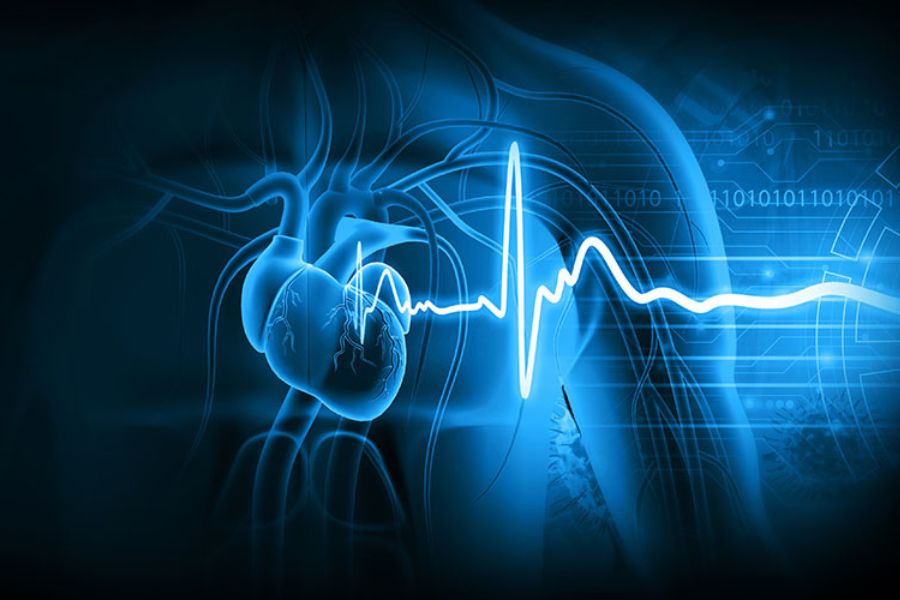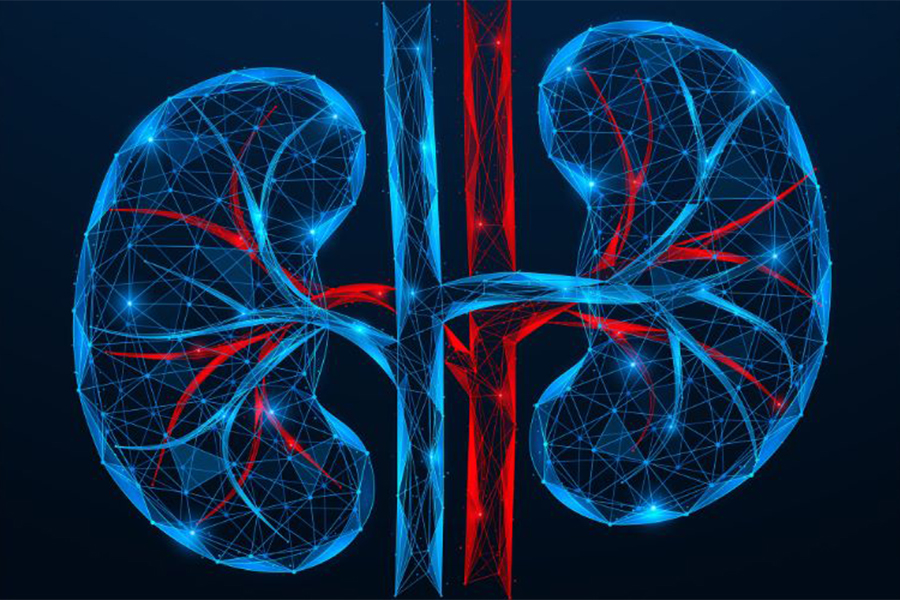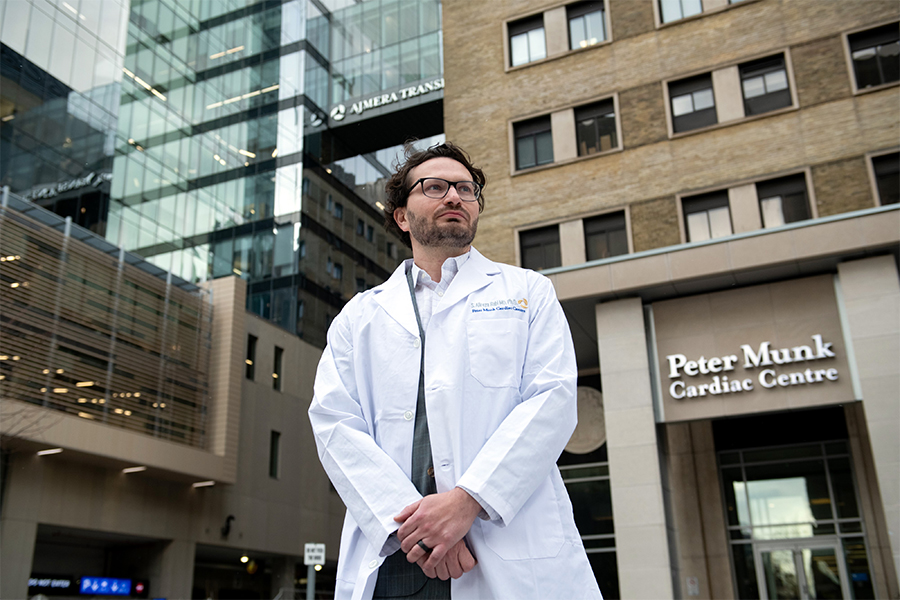But this decades-old way of diagnosing coronary artery disease could soon be a thing of the past, thanks to artificial intelligence (AI) technology.
“With our technology, you just lay down, take off your shirt and, with a hand-held, battery-operated device, your doctor can take a three-minute recording that collects 10 million data points,” explains Don Crawford, president and CEO of Analytics 4 Life Inc., a Toronto-based company focused on artificial intelligence-based medical devices. “This data is then sent to a cloud storage device, and from there our computers take that data and create a three-dimensional image of the heart, along with a detailed report,” explains Mr. Crawford.
“By the time the patient has their shirt back on, the physician has already received the report on their computer. And based on this report, they can let their patients know whether or not they need to go to the cath[eterization] lab.”
The Analytics 4 Life technology, currently being tested in a dozen hospitals in the United States, is at the leading edge of artificial intelligence in cardiac care – an emerging field of science that’s set to change the way cardiovascular diseases are diagnosed and perhaps even treated.
“The possibilities with artificial intelligence are truly exciting,” says Brian Golden, Sandra Rotman Chair in Health Sector Strategy at the University of Toronto (U of T) and the University Health Network (UHN) and vicedean of professional programs at U of T’s Rotman School of Management. “The ability to instantly recognize patterns and make sense of data from these patterns will improve diagnosis speed and quality, reduce wait times, improve health outcomes and reduce costs.”
In Canada, the stage is set for AI to transform how heart disease is diagnosed, treated and managed. And the Peter Munk Cardiac Centre (PMCC) is right in the centre of this exciting transformation, powered by digital data, ubiquitous connectivity and intelligent machines.
Armed with a $100-million donation from the Peter and Melanie Munk Charitable Foundation, the centre has forged a partnership with U of T’s Vector Institute for Artificial Intelligence, which was launched last March to advance deep learning research and develop world-leading AI talent.
“This is the first formal health-care partnership that the Vector Institute has engaged in, and we anticipate that what we do with the Vector [Institute] will be the model for what it does subsequently with cancer, neurosciences and other health disciplines,” says Dr. Barry Rubin, Chair and Program Medical Director, Peter Munk Cardiac Centre
Together, the PMCC and the Vector Institute will build an AI team that includes a lead computer scientist, software engineers and PMCC clinicians. This team will work to identify heart problems that can be solved through AI and machine learning.
What will AI-supported cardiac care look like to patients and healthcare professionals? Dr. Rubin paints a sample scenario, where doctors can remotely monitor patients with conditions such as abnormal heart rhythms and then bring to the hospital those who are identified as at risk of death or serious heart damage, based on AI algorithms that can analyze billions of biological and research data points.
“You can use the AI approach to pinpoint which patients face potentially lethal events, and bring them to the hospital before that happens,” says Dr. Rubin. “So you’re managing patients outside the hospital and using the real value of AI to predict and prevent these lethal events.”
By integrating all this data – blood tests, clinical notes, X-rays, ultrasounds, CT and MRI scans, pathology slides and genetic information – in one location, clinicians and researchers can use AI to discover potential causes of heart disease. These discoveries, in turn, can lead to new cures.
Toronto is one of the two epicentres for thought leadership in AI – the other place is Silicon Valley in California – and boasts a robust ecosystem for AI- and digital-based health-care innovations, says Ying Tam, head of health at the venture services for MaRS Discovery District, a Toronto innovation hub that connects entrepreneurs, business experts, researchers, educators and social scientists.
While AI champions continue to innovate in health care, it will likely take years before many of these new technologies are adopted in clinical practice, says Mr. Tam. Regulations that govern medical technology are complicated, says Mr. Tam, and could work against the very nature of artificial intelligence. For instance, when an organization such as the U.S. Food and Drug Administration approves a medical solution, it does so based on a specific information package. With AI, information continues to change as the underlying algorithms learn from existing and new data.
Having cemented its partnership with the Vector Institute, the PMCC must now work to integrate AI into practice – an undertaking that requires a shift in mindset around patient care.
“We will need to train clinicians and students at the PMCC to work in environments where AI-based predictions will inform treatment decisions and the management of patients,” says Dr. Rubin. “There’s no question that AI and machine learning are the future.”


